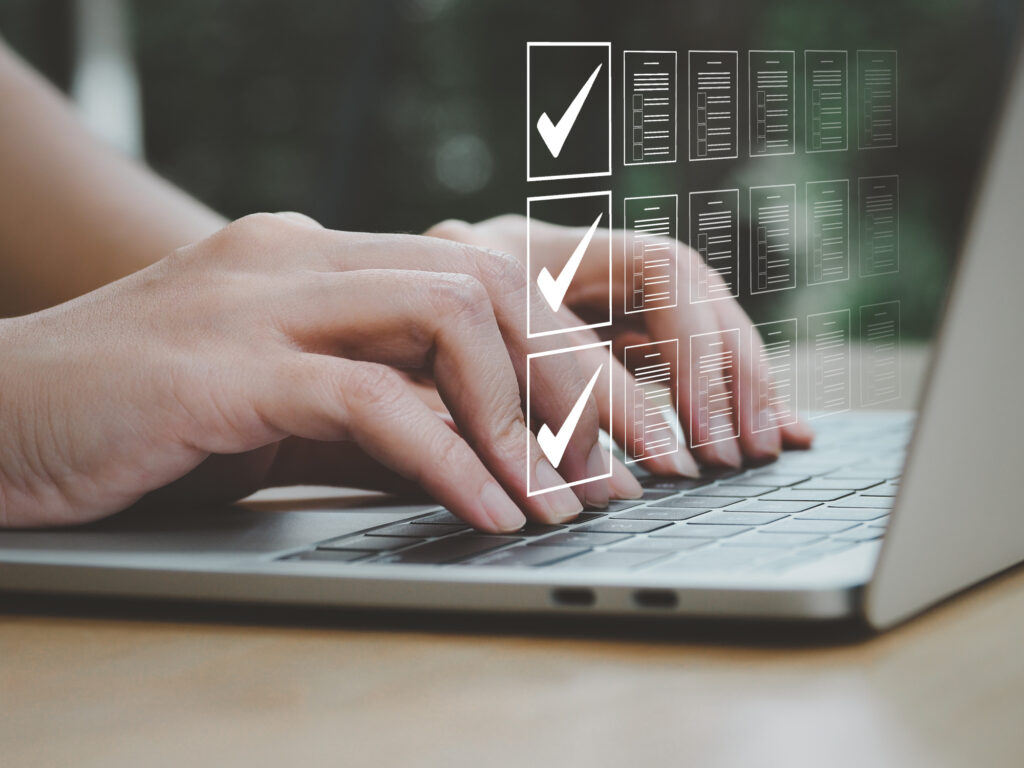In the complex world of business, where every transaction matters and every dollar counts, having a reliable accountant is like having a trustworthy guide on a difficult journey. Accountants protect the integrity of money by meticulously recording transactions, creating financial statements, and providing insightful counsel that helps companies succeed.
But financial stability isn’t guaranteed by simply hiring an accountant. That’s where the importance of an accounting checklist comes in – it serves as a roadmap, ensuring that every financial aspect is meticulously reviewed and verified to maintain accuracy and compliance.
What is an Accountant?
An accountant is someone who handles and examines financial information in a professional capacity. They are essential in keeping a business financially stable. They keep track of transactions, create financial statements, and offer valuable insights for decision-making.
What Makes a Good Accountant?
A good accountant not only has the necessary technical skills, but also values integrity, pays close attention to detail, and is dedicated to ethical practices. They need to have solid analytical abilities, good communication skills, and be proficient in accounting software.
Accounting Background Check
It’s a good idea to do a thorough background check before hiring an accountant. Make sure to confirm their education, certifications, and professional experience. Look at references and testimonials from past clients to get an idea of their reputation and dependability.
How to Check if Your Accountant is Qualified
Make sure your accountant has the necessary qualifications, like a CPA license or membership in a professional accounting organization. Review their track record, learn about the tools for accountants they use, and ask about what they’re currently working on to keep growing professionally. And don’t forget to use your accounting checklist to learn more about how to check if your accountant is qualified!

Accounting Checklist
- Accuracy of Financial Statements: Take a look at balance sheets, income statements, and cash flow statements to make sure they accurately show the financial position and performance of the business.
- Documentation of Transactions: Verify all the supporting documentation for financial transactions, like invoices, receipts, and bank statements, to ensure they are complete and accurate.
- Adherence to Accounting Standards: Confirm that the accountant has followed generally accepted accounting principles (GAAP) or relevant accounting industry standards.
- Compliance with Regulatory Requirements: Make sure that financial records and reports are in line with the necessary laws, regulations, and tax requirements, like IRS guidelines or international financial reporting standards (IFRS).
- Consistency in Record-Keeping: Double-check that all transactions are recorded consistently and that financial records are maintained accurately across different periods. This will help identify any irregularities or discrepancies that may arise.
- Reconciliation of Accounts: Verify the accuracy of bank reconciliations, accounts receivable, and accounts payable reconciliations to identify any discrepancies or errors.
- Transparency in Accounting Estimates: Assess the transparency and reasonableness of accounting estimates, such as depreciation, bad debt provisions, and inventory valuation methods.
- Timeliness of Financial Reporting: Make sure that financial reports are made and turned in on time, and that deadlines for both internal management reporting and financial disclosures to the public are met.
- Communication of Financial Insights: Determine how well the accountant can explain financial ideas and analysis so that you can use that knowledge to make decisions.
- Independent Review of Work: Consider getting someone else to review the accountant’s work. It could be a good idea to have a qualified third party, like a financial auditor or consultant, take a look to make sure the financial records and reports are accurate and reliable.
How to Monitor Accounting Estimates
Monitoring accounting estimates entails learning about the methods and assumptions used, comparing them to past data and industry standards, and checking the paperwork to make sure everything is clear. It’s important to look at the expected effects on financial statements regularly.
Having open communication with an accountant allows for discussing the reasoning behind decisions and the potential risks involved. It’s always a good idea to get input from financial experts to make sure everything is accurate. This monitoring helps reduce the chances of errors, giving you trustworthy information to make decisions.
How to Check if Your Accountant Filed Your Taxes
April 15 comes and goes, and you may still wonder: “How do I check if my accountant filed my taxes?” It’s simple. Just ask your accountant for a copy of the filed tax return and any supporting documentation to double-check if everything is in order. Double-check the submission date with the IRS or relevant tax authority. Double-check the return to make sure everything is accurately reported, including income, deductions, and credits. See if there’s any mail from the IRS about the filing.
You can check the status of your refund using online resources like “Where’s My Refund?” or by contacting the IRS personally if you’re unsure. Keeping an open line of communication with your accountant is crucial for being honest and accountable when submitting your taxes.
How HUB Can Help With Checking Your Accountant’s Work
HUB Analytics streamlines the process of checking your accountant’s work by providing comprehensive financial reporting, data diagnostics, and an accounting checklist. With its advanced features, HUB ensures adherence to financial reporting standards and legal compliance, saving time and reducing the risk of errors.
By leveraging HUB Analytics, you can easily verify the accuracy and reliability of your accountant’s work, enhancing transparency and confidence in your financial management processes.
Frequently Asked Questions About Checking Accountant’s Work
What are the 5 basic accounting elements?
Here are the five basic accounting elements, also referred to as the fundamental accounting equation:
- Assets
- Liabilities
- Equity
- Revenue
- Expenses
Why is a checklist important in accounting?
Having a checklist makes sure everything is accurate, complete, and follows all the necessary regulations. It’s great for accountants to have a systematic approach in place. This helps prevent errors, avoid overlooking important tasks, and reduce the risk of fraud or misstatements in financial records.
How do you check if an accountant is legitimate?
To verify the legitimacy of an accountant, you can do a kind of accountant background check:
- Check their qualifications and credentials. Confirm that they are certified or licensed by relevant professional organizations.
- Verify their reputation by asking for references, reading reviews, or checking with regulatory agencies.
- Look for any disciplinary actions or complaints against them on professional licensing boards or online databases.
Who checks an accountant’s work?
Internal auditors review accountants’ work to ensure correctness within organizations. Financial statements are examined by external auditors to reassure stakeholders. The SEC and other regulatory agencies are in charge of compliance. Professional organizations uphold standards and look into misbehavior. These verifications guarantee the accuracy and credibility of financial reporting.
How do I verify a CPA in the US?
Check the licensure status of a CPA in the U.S. by contacting the State Board of Accountancy for your state. A nationwide database of licensed CPAs is available at CPAverify.org. Confirm their membership by getting in touch with the American Institute of CPAs. These techniques guarantee the CPA’s authority and competence, so you don’t find yourself in the awkward position of firing an accountant.
